This article was medically reviewed by Janice Litza, MD. Dr. Litza is a board certified Family Medicine Physician in Wisconsin. She is a practicing Physician and taught as a Clinical Professor for 13 years, after receiving her MD from the University of Wisconsin-Madison School of Medicine and Public Health in 1998.
There are 11 references cited in this article, which can be found at the bottom of the page.
This article has been viewed 5,871,926 times.
Research shows that you are mostly likely to be fertile if your semen contains at least 15 million sperm per milliliter. If you're worried that your count may be too low, or if you've seen a doctor and been diagnosed with low sperm count, try to keep things in perspective -- you may have to try a few different strategies, but experts agree that most male fertility issues can be successfully treated. There are a number of effective steps you can take to boost your sperm count and increase your odds of getting your partner pregnant.[1]
Steps
Changing Your Habits
-
1Avoid overheating your testicles. There's a reason testicles are outside of a man’s body: they need to stay a bit cooler than the rest of his internal organs. When testicles get too warm, they aren't able to produce as much sperm.[2] There are a number of ways to make sure your testicles don't get overheated:
- Don't wear tight pants and jeans.
- Wear loose, cotton boxer shorts instead of briefs.
- Sleep without underwear so that your testicles stay cooler.
- Avoid hot baths and saunas.
-
2Wear a jockstrap when you play sports. It goes without saying, because most men know this from experience, but a blow to the balls will hurt you and kill your sperm.
-
3Reduce stress levels. Stress can decrease your sexual function, leading to reduced sperm production.[3] If you work 12 plus hour days and never give yourself a chance to rest, your count might be down as a result. Try practicing relaxation techniques throughout the day to keep yourself feeling calm. Keep your mind and body healthy by regularly practicing yoga and meditation, or take up running or swimming.
- Stress hormones block Leydig cells, which are tasked with regulating testosterone production. When your body experiences too much stress, it can actually stop producing sperm altogether.
- Make sure you're getting enough sleep every night. Exhaustion can also lead to increased stress and cause decreased sperm production.
-
4Stop smoking. Smoking cigarettes causes sperm counts to be lower, makes them move more slowly, and causes the sperm themselves to be misshapen. According to one study, men who smoke have 22% fewer sperm than men who don't. Marijuana seems to have a similar effect on sperm.[4] Cutting back on both of these substances is a good idea if you want to boost your count.
-
5Drink alcohol moderately. Alcohol affects your liver function, which, in turn, causes a dramatic spike in estrogen levels. (Yes, men have estrogen.) Since testosterone is directly linked to sperm health and sperm production, this isn't good. Even two drinks a day will have long-term effects on sperm production.
-
6Ejaculate less frequently. Frequent ejaculations can lower sperm count. Your body produces millions of sperm each day, but if you already have low sperm count, consider storing them up longer between ejaculations. If you have sex or masturbate daily, cut down on the frequency for increased sperm production.
-
7Be careful around toxins. Exposure to chemicals can affect the size, movement and count of your sperm. It's more and more difficult to avoid exposure to toxins, but it's absolutely necessary for your overall health and the health of your sperm. Do the following to decrease your exposure:
- If you work around chemicals all day long, protect your skin with long sleeves and gloves, and make sure you wear a mask and goggles to protect your face.[5]
- Use natural cleaning supplies instead of cleaning with chemicals.
- Don't use pesticides or herbicides in your house or yard.
-
8Be wary of medications. Certain medications can lead to decreased sperm count and even permanent infertility. If sperm production is a big concern for you, make sure you ask your doctor whether any medication prescribed might affect your sperm count.[6] Look at the labels on over-the-counter medicines, too.
Improving Your Diet and Exercise Regimen
-
1Exercise regularly. Finding out a workable exercise regimen is a tough task in the modern world, but rest assured that exercise will help you produce more sperm. Exercise releases testosterone into your body, helping with sperm production. Use compound exercises and lift heavy weights, but refrain from working the same set of muscles the day after. Giving your muscles time to rest and rebuild should help you produce testosterone.
- Do not exercise too much! Excessive exercise causes the release of adrenal steroid hormones that actually cause a testosterone deficiency. So whether you want to put on that extra muscle or help out your sperm, remember not to stress your body too much.
- Do not use anabolic steroids. Anabolic steroids may help you pack on the pounds, but they shrink your testicles and may cause infertility. If you're trying to conceive, stay far, far away.
-
2Eat healthy foods. A diet that's low in fat, and high in protein, vegetables, and whole grains is good for your health and for your sperm.
- Eat plenty of fish, meat, eggs, fruits and vegetables.
- Peanuts, walnuts, cashews, sunflower and pumpkin seeds are also considered to increase sperm count.
- Avoid an excessive amount of soy-based foods and high-fructose corn syrup. Soy foods have a mild estrogenic effect on the body. While that may be good for women, it's not great for sperm. High-fructose corn syrup may cause insulin resistance, which lowers fertility.
-
3Lose weight. Losing weight will help you counteract low sperm count. Scientists don't know why obesity correlates to low sperm count, but a recent French study found that obese men were 42 percent more likely to have low sperm count than their non-obese counterparts. In the same study, scientists found that obese men were 81 percent more likely to have no sperm at all in their ejaculate.[7]
- There are a number of different theories for why this is. Some speculate that fatty tissue converts testosterone into estrogen; others speculate that more mass in the thighs could make the testicles too hot.
-
4Try supplements.[8] Try supplements that are made from natural herbal ingredients to specifically help the body make more semen. Researchers found that men who consumed 5 mg of folic acid and 66 mg of zinc sulfate a day for 26 weeks experienced an almost 75 percent increase in sperm count. Folic acid and zinc sulfate are critical in the formation of DNA.
- Vitamin C and selenium may also be good supplements to take to increase sperm production.
-
5Use herbs and homeopathy. They may help you to increase your sperm count. Just make sure to get these supplements from a reliable source. Homeopathic ingredients include the following:
- Passiflora Incarnata can restore the male sexuality and increase sperm count in men who have low sperm count due to smoking Marijuana.[9] ,
- Zincum Metallicum: this homeopathic ingredient increases the elemental zinc and helps to improve the semen quality and sperm count.
- Damiana, Yohinbinum: These homeopathic ingredients have been studied scientifically for their effects to boost male sexuality and improve the libido.[10]
- Herbs such as Ipomoea digitata, Emblica officinalis, Chlorophytum arundinaceum,[11] Argyreia speciosa, Mucuna pruriens, Withania somnifera , Tinospora cordifolia , Tribulus terrestris, Sida cordifolia, and Asparagus racemosus,[12] have been used as natural Aphrodisiac. They increase the Testosterone levels and also correct the erectile dysfunction. Herbs such as withania somnifera also act as a natural anxiolytic. It reduces physical and psychological stress and may help men with stress as the main causative factor for their low sperm count.
Getting Medical Treatment
-
1Get tested and treated for STIs. Certain sexually transmitted infections, such as chlamydia and gonorrhea, can cause scarring that interferes with the passage of sperm.[13] Get regularly tested for STIs; if you have one, be sure to get the proper treatment. In most cases you'll be prescribed a course of antibiotics to clear up the infection.
-
2Determine if you have a varicocele. This is a swelling of the veins that drain the testicle. It can lead to increased temperature of the testicle and decreased sperm count. See your doctor to determine if this might be affecting your fertility. If so, a surgical procedure can take care of the problem.[14]
-
3Try hormone treatments and medications. It's possible that your sperm count is low because your hormones are out of balance. Hormone replacement treatments and medications can change your hormone levels and help you produce more sperm. Talk with your doctor about whether this option is right for you.
- Hormone replacement treatments and medications usually take at least 3 months to work before you start seeing results.
Expert Q&A
Did you know you can get expert answers for this article?
Unlock expert answers by supporting wikiHow
-
QuestionHow do I tell if I have enough sperm to get a woman pregnant?
 Janice Litza, MDDr. Litza is a board certified Family Medicine Physician in Wisconsin. She is a practicing Physician and taught as a Clinical Professor for 13 years, after receiving her MD from the University of Wisconsin-Madison School of Medicine and Public Health in 1998.
Janice Litza, MDDr. Litza is a board certified Family Medicine Physician in Wisconsin. She is a practicing Physician and taught as a Clinical Professor for 13 years, after receiving her MD from the University of Wisconsin-Madison School of Medicine and Public Health in 1998.
Board Certified Family Medicine Physician
References
- ↑ https://www.mayoclinic.org/diseases-conditions/low-sperm-count/diagnosis-treatment/drc-20374591
- ↑ http://www.webmd.com/infertility-and-reproduction/features/boxers-vs-briefs-increasing-sperm-count
- ↑ http://www.mayoclinic.com/health/fertility/MC00023
- ↑ http://www.mayoclinic.com/health/fertility/MC00023/NSECTIONGROUP=2
- ↑ http://www.mayoclinic.com/health/fertility/MC00023/NSECTIONGROUP=2
- ↑ http://www.mayoclinic.com/health/fertility/MC00023/NSECTIONGROUP=2
- ↑ http://www.reuters.com/article/2012/03/15/us-weight-idUSBRE82E14820120315
- ↑ http://www.webmd.com/infertility-and-reproduction/news/20020320/supplements-boost-sperm-count
- ↑ http://onlinelibrary.wiley.com/doi/10.1038/sj.bjp.0705015/full
- ↑ http://li123-4.members.linode.com/files/Alternative%20Therapies%20for%20Male%20and%20Female%20Sexual%20Dysfunction.pdf
- ↑ http://www.ncbi.nlm.nih.gov/pmc/articles/PMC3902593/
- ↑ http://globalresearchonline.net/journalcontents/volume5issue1/Article-016.pdf
- ↑ http://www.mayoclinic.com/print/low-sperm-count/ds01049/method=print&dsection=all
- ↑ http://www.mayoclinic.com/print/low-sperm-count/ds01049/method=print&dsection=all
About This Article
If you want to increase your sperm count, eat a diet that’s low in fat and high in protein, vegetables, and whole grains since that can help the health of your sperm. For example, you should have lots of fish, eggs, nuts, and seeds. Along with sticking to nutritious foods, try to drink alcohol only in moderation if at all since more of it can contribute to lower sperm production. If you smoke, consider quitting or cutting back so can produce more sperm. Another way to boost your sperm count is to exercise regularly since that will release more testosterone in your body. When you work out more, you may also lose weight, which is a plus since obesity is tied to lower sperm count. For more help from our Medical co-author, including how to get medical treatment to increase your sperm count, read on!
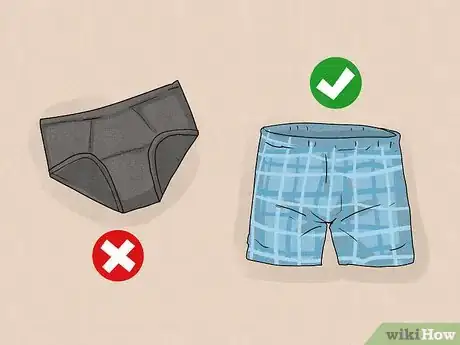
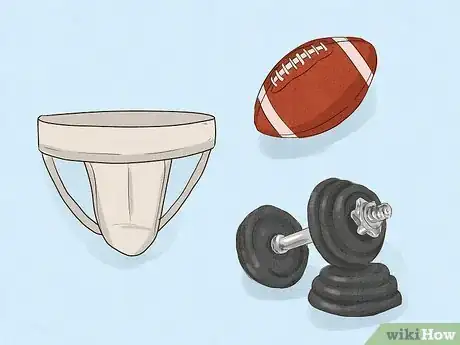




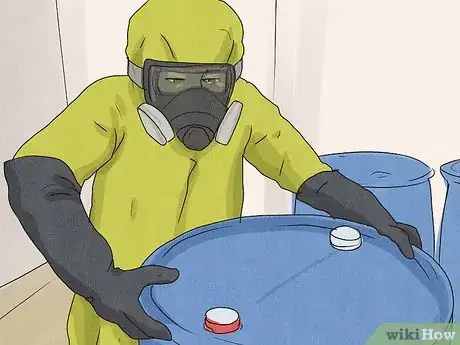
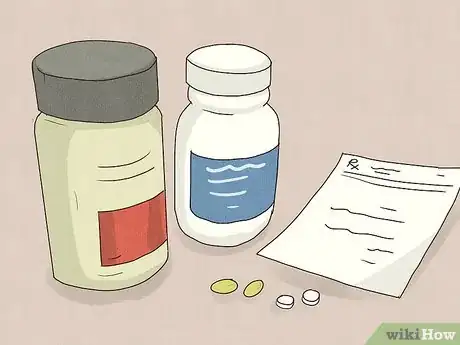


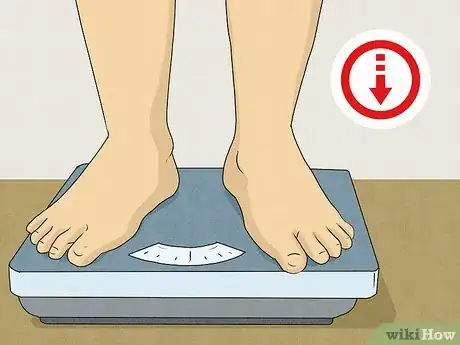
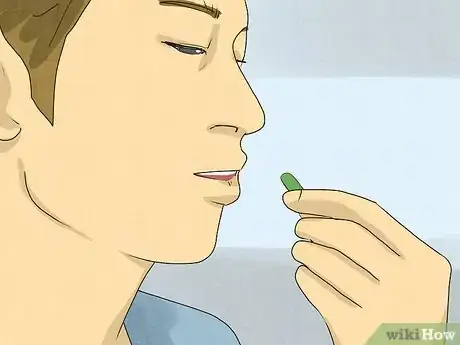

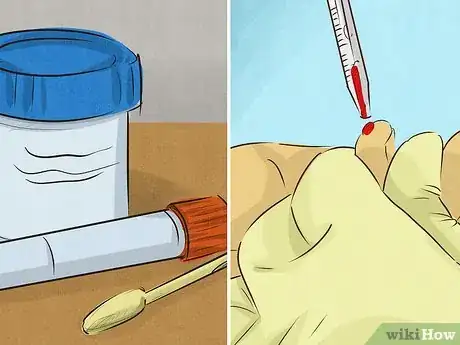
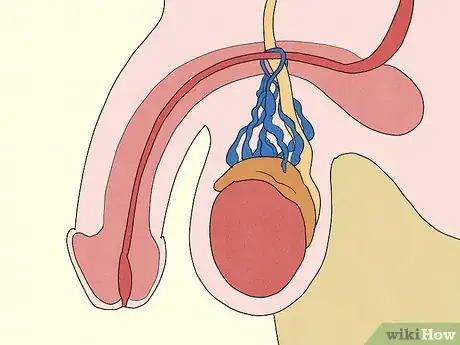
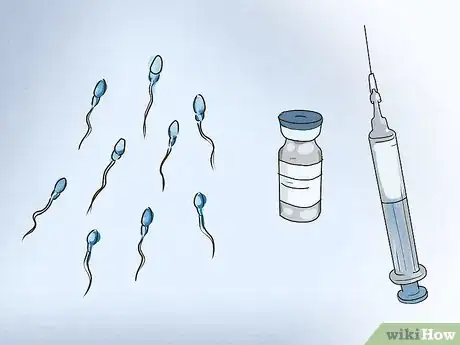
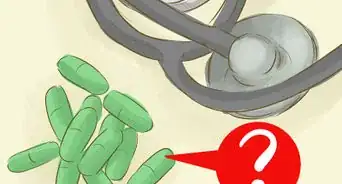


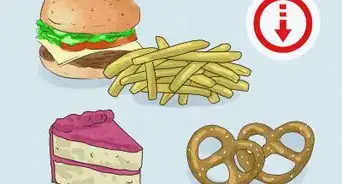



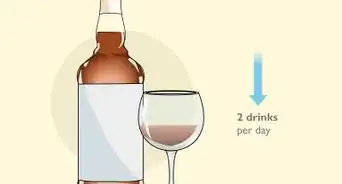

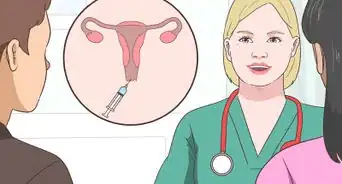

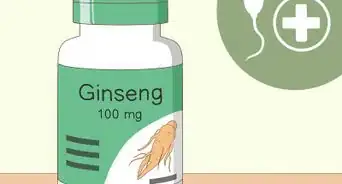










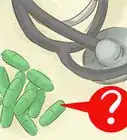







































Medical Disclaimer
The content of this article is not intended to be a substitute for professional medical advice, examination, diagnosis, or treatment. You should always contact your doctor or other qualified healthcare professional before starting, changing, or stopping any kind of health treatment.
Read More...